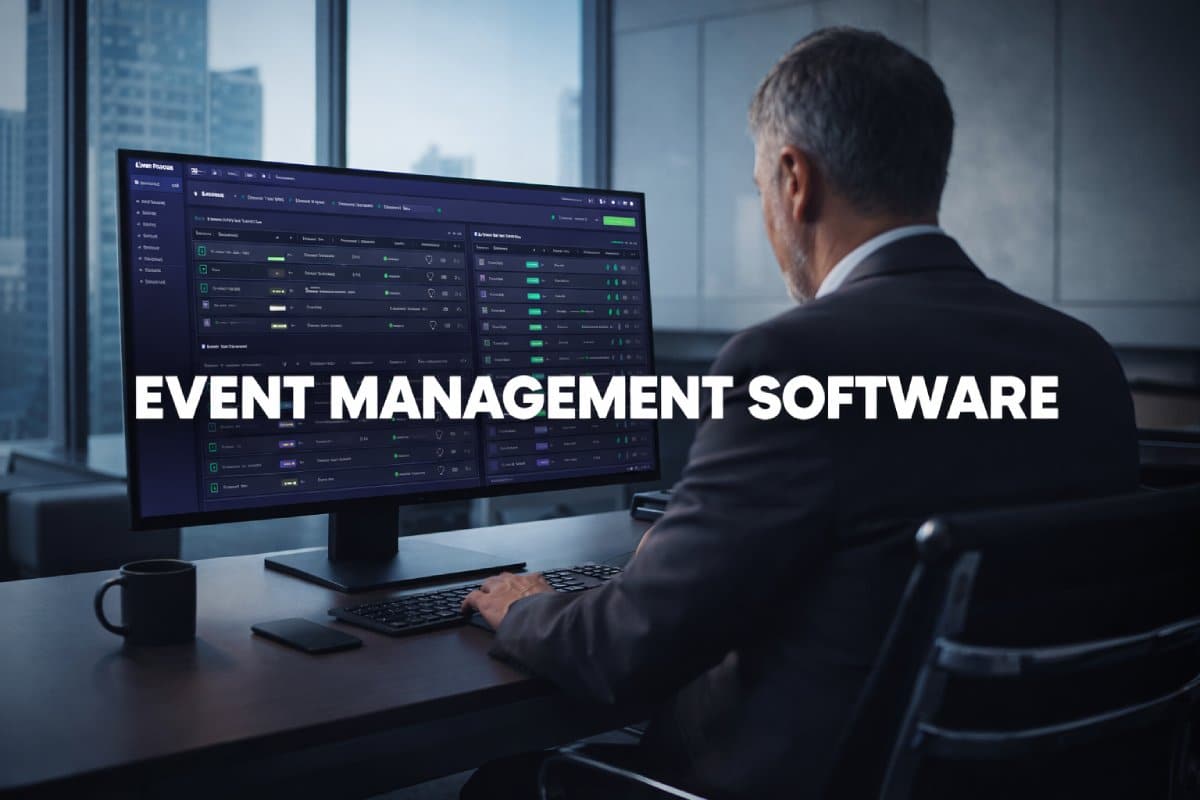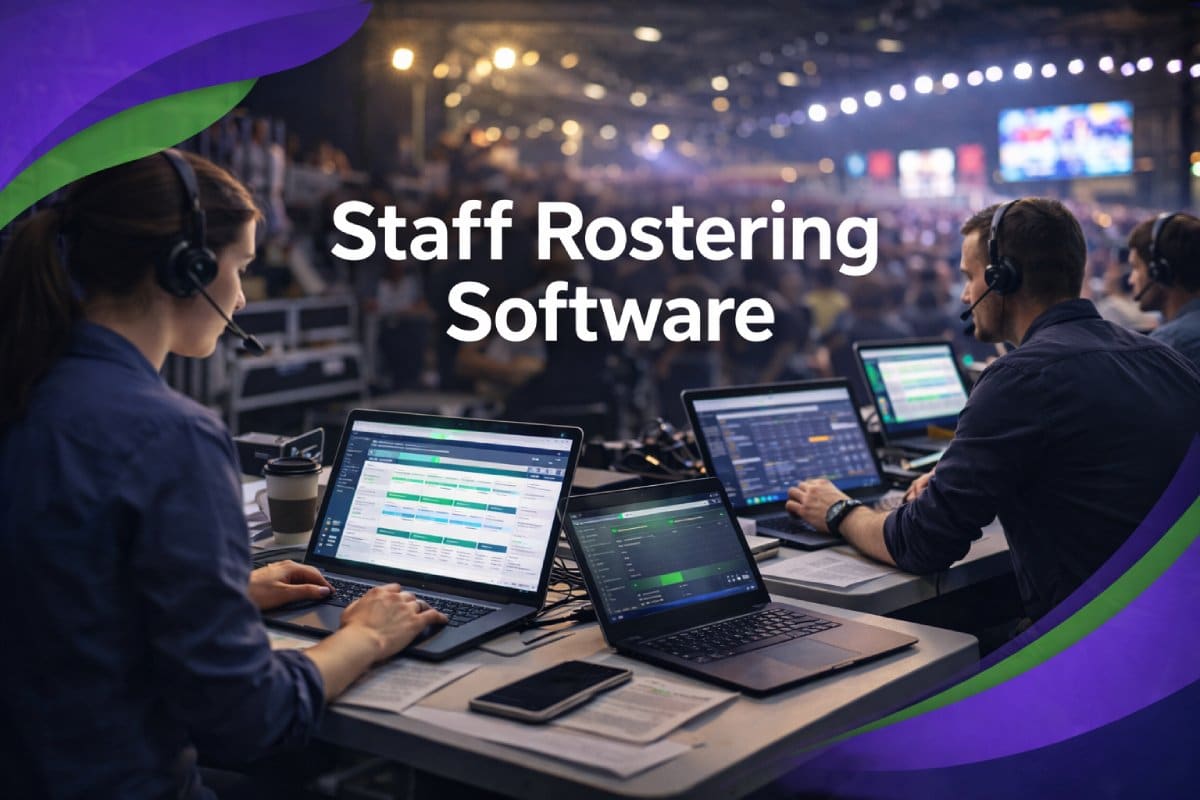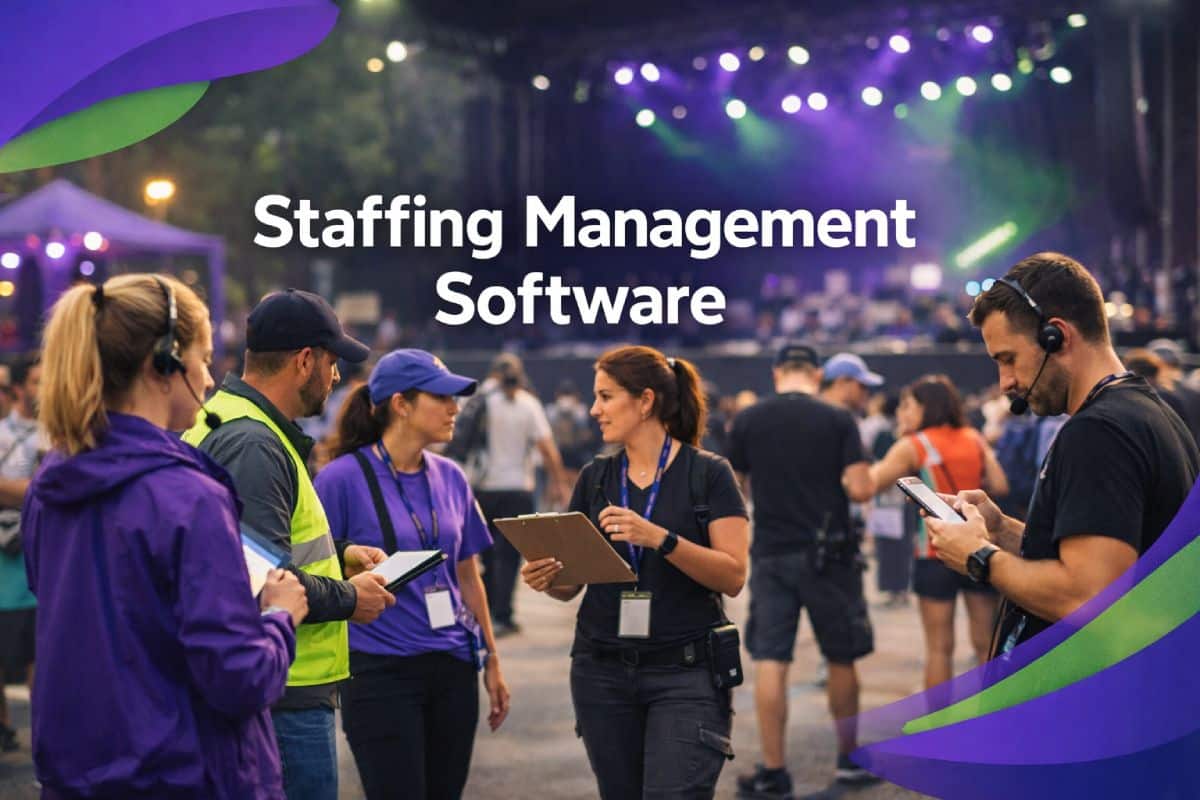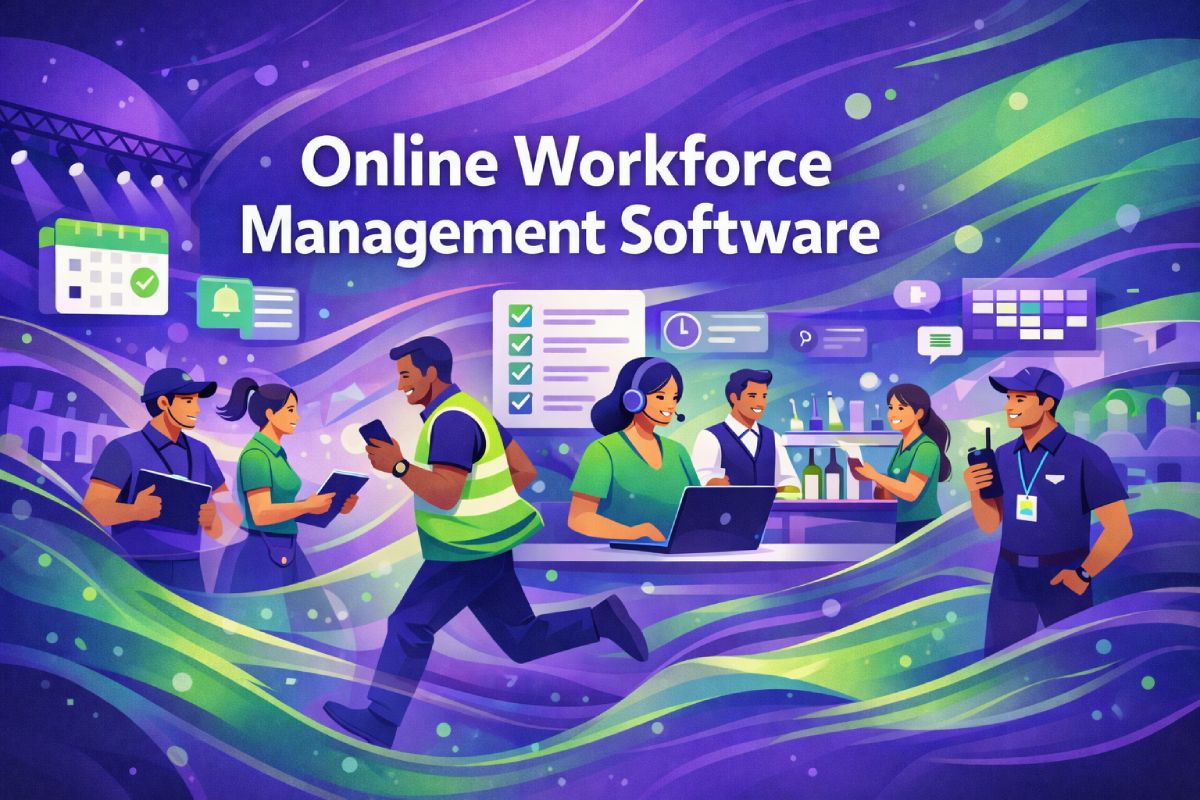The UK events industry is a significant contributor to the economy, generating billions of pounds in revenue and employing hundreds of thousands of people. But recent years have brought challenges – from global disruptions to changing consumer expectations.
For agencies, staffing providers, and venues, staying ahead means adapting quickly, embracing new technologies, and finding smarter ways to manage temporary workforces.
In this article, we explore the current state of the industry, its value, latest trends, and ongoing issues – and show how Liveforce helps event staffing agencies and organisers thrive in this evolving landscape.
What Industry Is Event Management and Event Planning?
Event management and event planning fall under the hospitality and service industries, closely linked to tourism and marketing. From festivals and conferences to sports and exhibitions, this sector requires vast networks of suppliers, venues, and staff.
For agencies and staffing providers, event management is not just about logistics. It’s about building reliable teams of temporary workers who can deliver consistent, high-quality experiences. This is where workforce management platforms like Liveforce become essential.
How Much Is the UK Events Industry Worth?
Before the pandemic, the events industry in the UK contributed over £70 billion annually to the economy and supported more than 700,000 jobs.
While 2020 saw a 76% drop in revenue, recovery is underway. Demand for festivals, conferences, and outdoor events is rebounding, and with it, the need for skilled staff.
Quick Stats:
- £70bn+ contribution to the UK economy (pre-pandemic)
- 700,000+ employed in the sector
- 68% increase in hybrid and virtual events since 2020
For staffing agencies, these numbers highlight the scale of opportunity – but also the complexity of managing such a large workforce.

Event Industry News and Trends in 2025
Keeping up with event industry news is crucial for agencies and suppliers. The latest trends shaping the events industry include:
- Hybrid and Virtual Events: While live events are back, digital elements remain standard.
- Sustainability: 79% of attendees want eco-friendly practices. Agencies must adapt to greener operations.
- Technology Integration: From AI-driven scheduling tools to event apps, digital transformation is non-negotiable.
- Personalisation: Delegates expect tailored experiences, not one-size-fits-all gatherings.
Platforms like Liveforce support this shift by helping agencies streamline staff management, ensuring every event is adequately staffed and compliant.
Current Issues in the Events Industry
Despite recovery, agencies and organisers still face challenges:
- Skills Shortages: Recruiting and retaining skilled event staff remains difficult.
- Rising Costs: Inflation and higher supplier fees squeeze budgets.
- Regulation and Compliance: Changing health and safety requirements add complexity.
- Uncertainty: Political and economic instability impacts event planning.
For staffing providers, these challenges often mean last-minute cancellations, compliance risks, and crew disengagement. Liveforce tackles these issues by automating scheduling, compliance tracking, and communication, giving agencies more control and flexibility.

The Outdoor Events Industry
The outdoor events industry has seen significant growth, from music festivals like Glastonbury to major sporting events at Silverstone and Wembley.
These large-scale events often require thousands of temporary staff across multiple roles – from security and hospitality to brand ambassadors and technicians.
Coordinating such a diverse workforce is a huge challenge. With Liveforce, agencies can:
- Quickly schedule large teams across multiple sites
- Ensure compliance and safety requirements are met
- Give staff access to shifts and payments via the Crew App
This makes outdoor event staffing more efficient and scalable.
How to Get Into the Events Industry
Many professionals ask: “How do I get into the events industry?” The truth is, most careers start with temporary or part-time work. Roles in hospitality, promotion, or festivals provide a stepping stone into event planning and management.
For agencies, platforms like Liveforce make it easier to onboard new talent, match them to the right shifts, and keep them engaged with clear communication and reliable payments.
How Liveforce Supports Staffing in the UK Events Industry
Liveforce is designed for the unique demands of the UK events industry. Unlike generic rota software, it is built specifically for agencies and suppliers managing temporary staff at scale.
With Liveforce, you can:
- Streamline staff scheduling across multiple projects and clients
- Track compliance and skills to ensure the right crew are assigned
- Automate timesheets and payments to save time and reduce admin
- Engage crew with a dedicated staff app for jobs, payments, and updates
By solving workforce challenges, Liveforce empowers agencies to focus on delivering exceptional event experiences.
That’s where Liveforce comes in. By simplifying scheduling, compliance, and communication, Liveforce helps agencies keep events running smoothly – whether it’s a festival, a sports fixture, or a corporate event.
👉 Ready to see how Liveforce can transform your staffing operations?
FAQs
The sector is valued at over £70 billion, employing more than 700,000 people.
Event management is part of the hospitality and service industries, overlapping with tourism and marketing.
Hybrid events, sustainability, technology, and personalisation are leading trends in 2025.
Skills shortages, rising costs, compliance, and ongoing uncertainty are the main challenges.
Many start in temporary staffing roles, gaining experience in hospitality, festivals, or marketing before progressing into management.





